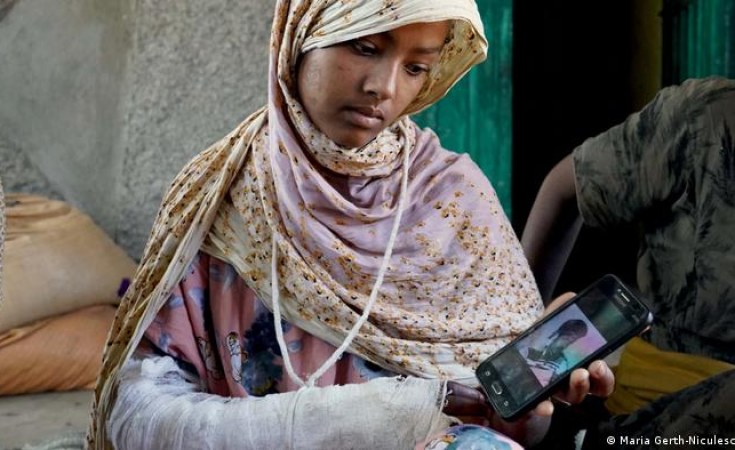Harare — As its federal and Tigray regional governments are finally gearing up for direct negotiations for peace, Prime Minister Abiy Ahmed has accused a rebel group of carrying out a "new massacre" of civilians in the western Oromia state.
Although State media hasn't given extensive coverage to the alleged murders, what made the headlines is a tweet from Abiy on July 4, in which he said the Oromo Liberation Army (OLA) was "inflicting damage" on civilians as its fighters fled an offensive by security forces in Oromia.
Abiy's office did not disclose how many people were killed, and confirmation of the toll is challenging because access to Oromia is limited. Additionally, there was a communications blackout in the area where the executions occurred.
"Citizens living in the Qellem Wollega zone of Oromia state have been massacred," he said.
The OLA has been blamed for a series of deaths targeting Amharas, Ethiopia's second-largest ethnic group, but the rebels have denied any involvement.
For decades, the village had been a sanctuary for families, who farmed the land and cared for their herds. But now any sense of safety has vanished.
The attack was the latest in a series of ethnic attacks that have placed a cloud over Ethiopia, calling into doubt the country's long-term stability, regional status, and the ability of its diverse ethnic groups to cohabit peacefully.
The violence comes almost two years into the conflict in the northern region of Tigray, which has been marked by the massacre of civilians, destruction of hospitals, schools and a mass exodus of refugees, including to neighboring Sudan.
Ethiopia's economy, which was once one of the fastest growing in Africa, has been pummelled by the conflict, and it was already struggling due to a record drought that has ravaged fields and livestock over broad areas of the country.
The violence has also highlighted the challenge Ahmed faces as he attempts to consolidate his power across a country of 115 million people and dozens of ethnic groupings, each with its own set of distinct and occasionally conflicting interests.
However, as ethnic violence grows, human rights organizations have criticized the government's communications blackouts in several places, which have made it difficult to report and investigate violations.
Abiy took office in 2018 following anti-government demonstrations organised by the Oromos, the biggest ethnic group in Ethiopia.
But shortly after, the government started to suppress their demonstrations and detained Oromo leaders and activists, some of whom had emerged as tenacious foes to Abiy's vision of a more centralized Ethiopia.
The Tigray War began on November 3, 2020 when Abiy Ahmed ordered a military offensive against regional forces in Tigray.
He said he did so in response to an attack on a military base housing government troops. When Abiy pursued reforms, Tigray resisted, and what began as a political crisis erupted into war. Thousands of people have been killed, and several million others have been displaced from their homes as a result of the fighting between forces loyal to Abiy and the Tigray People's Liberation Front (TPLF) and their allies.


